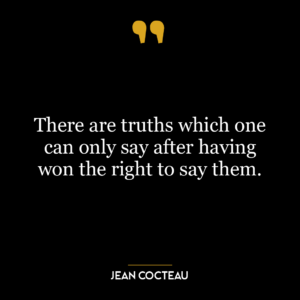“Virtue alone is sufficient to make a man great, glorious, and happy” is a profound statement that emphasizes the importance of moral excellence and righteousness in achieving greatness, glory, and happiness. It suggests that the true measure of a person’s worth is not their material wealth or social status, but their moral character and the virtues they uphold.
In this context, virtue refers to qualities considered morally good or desirable in a person, such as integrity, honesty, courage, loyalty, and compassion. The quote implies that possessing these virtues is enough to make one great, implying a sense of respect or admiration; glorious, signifying honor and high renown; and happy, denoting a state of contentment or joy.
The underlying message of this quote is that external achievements or possessions are not the ultimate determinants of a person’s worth or happiness. Instead, it is one’s internal moral compass, the virtues one upholds, that truly defines one’s greatness and happiness.
Applying this idea to today’s world or personal development, it suggests that we should focus more on cultivating virtues rather than solely pursuing materialistic goals. In a society that often places a high value on wealth, status, and power, this quote serves as a reminder that true greatness and happiness come from within, not from external sources.
In terms of personal development, it encourages us to prioritize moral growth over material growth. This means striving to be better people, treating others with kindness and respect, standing up for what is right, and maintaining integrity even when it’s difficult. It’s about making decisions that align with our personal values and beliefs, rather than what’s convenient or advantageous in the short term.
In summary, this quote reminds us that virtue is the most important attribute one can possess, and that true greatness, glory, and happiness are derived from maintaining a strong moral character, regardless of external circumstances.













